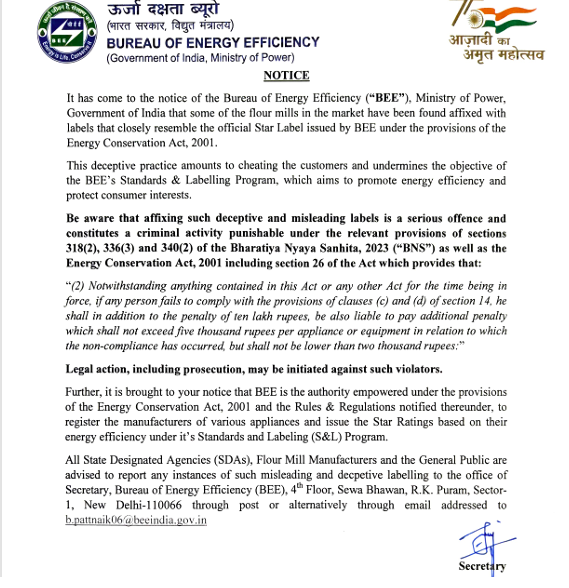Indo German
The Indo-German Energy Forum (IGEF) was established in April, 2006 between Government of the Federal Republic of Germany and Republic of India to intensify the Indo-German Co-operation to promote dialogue and cooperation with involvement of public and private sector in the areas of energy security, energy efficiency, renewable energy, investment in energy projects and collaborative R&D. While the IGEF is a high-level policy dialogue between India and Germany, the IGEF Support Office is incorporated in the structure of the Indo-German Energy Programme (IGEN).
Under the Indo-German Energy Forum there are 4 sub-groups.
Sub-group 1 is efficiency enhancement in fossil fuel-based power plants,
Sub-group 2 is renewable energy
Sub-group 3 is demand side energy efficiency and low carbon growth strategies
Sub-group 4 is green Energy Corridors.
The Sub-Group 3 is being led by Bureau of Energy Efficiency are working to put in place a positive environment for enhancing energy efficiency. This is achieved by facilitating a constructive dialogue between decision-makers in Government and the private sector in both countries.
Activities and current progress in area of Cooperation between BEE and IGEF under subgroup 3
- Working on energy efficiency in industry, cooling and shifting electricity demand peaks at night when solar power is not available.
- Exploring opportunities with studies under followings topics i.e. Study on Energy Efficiency and Demand Shift in Steel, Overview successful Green Hydrogen Pilots in Germany, Study on Demand Shift potential in Cooling.
- Various workshops and seminars on topics such as CO2 markets, energy efficient brick manufacturing (E3 mark), ESCO business models and Energy Efficiency in Buildings were organized.
Indo German Energy Programme (IGEN)
The Indo-German Technical Co-operation in the field of Energy Conservation has been going on since 1995, when the Indo-German Energy Efficiency project, was launched in May 1995, by the Energy Management Centre, a predecessor organization of the Bureau of Energy Efficiency (BEE), through Tata Energy Research Institute, Bangalore. The project was completed in September 2000. With the enactment of the Energy Conservation Act 2001 and establishment of Bureau of Energy Efficiency with effect from 1st March 2002, the cooperation in the field of energy conservation continued under the project "Indo-German Energy Programme (IGEN) with the objective to support policies and programmes of the Energy Conservation Act.
District Cooling System
The project “Energy Efficient Cooling – EE-Cool” has been initiated under the Indo-German Energy Programme (IGEN) on the basis of an implementation agreement signed on 01.11.2019 between the Bureau of Energy Efficiency (BEE) and Deutsche Gesellschaft für Internationale Zusammenarbeit (GIZ) GmbH financed through the International Climate Initiative (IKI) of the Government of Germany.
As per the agreement mentioned above the project supports the BEE in the implementation of the India Cooling Action Plan (ICAP) with regard to energy-efficient centralised space cooling systems, taking into account the positive climate effects of non-partially fluorinated or partially halogenated refrigerants.
The project has been extended cost-neutrally until 31.12.2023.
Energy Efficiency in Industry and Data
The Indian and German Government, in their government-to-Government negotiations in 2019, agreed to provide technical assistance up to EUR 4 million for promoting energy efficiency in steel, pulp and paper or any other similar industry sector. In line with this commitment, a new project “Energy Efficiency in Industry and Data” has been commissioned by BMZ Germany, with a planned duration of 3 Years i.e (2020-23). The project focusses to strengthen the secondary steel and the paper sectors through various technical and policy level aspects at state and national level.
The main objectives of the project are:
- Capacity building of selected State Designated Agency to promote energy efficiency in Non-PAT industries
- Providing Non-PAT secondary steel and pulp and paper industries with access to information on key energy efficiency processes and technologies
- Institutionalization of peer-to-peer learning among SDAs and Non-PAT secondary steel and pulp and paper industry clusters
- National Energy Efficiency dialogue for secondary steel and pulp and paper sector between policy makers, research institutions and business associations.





